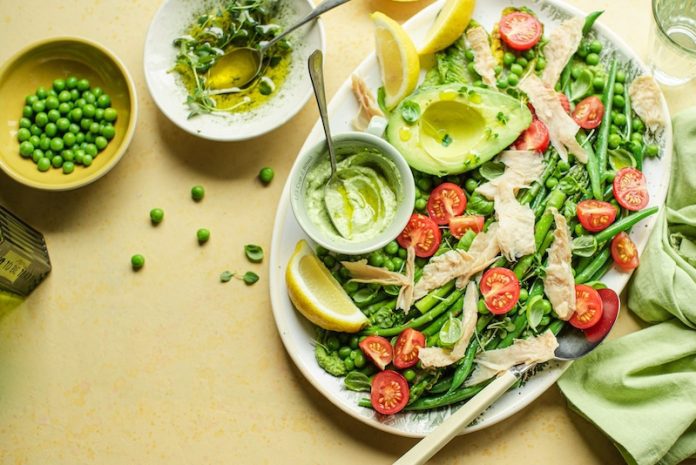
Breast cancer is a major health concern for women all around the world.
Thanks to advances in medicine, many women survive breast cancer and go on to live healthy lives.
However, treatments like chemotherapy and radiation can take a toll on the heart.
This makes it important for breast cancer survivors to take extra care of their heart health. One way to do this is by following a healthy diet.
Recent research suggests that the DASH diet can help reduce the risk of heart disease for women who have been treated for breast cancer.
The DASH diet stands for Dietary Approaches to Stop Hypertension. It was originally developed to help lower blood pressure, but it has also been found to have other health benefits, including reducing the risk of heart disease.
The diet focuses on eating plenty of fruits, vegetables, whole grains, and lean proteins, while limiting salt, sugar, and unhealthy fats.
Studies have shown that following the DASH diet can be especially beneficial for breast cancer survivors.
Treatments for breast cancer can sometimes weaken the heart and increase the risk of heart disease. The DASH diet helps by providing nutrients that support heart health and by encouraging eating habits that reduce stress on the heart.
Fruits and vegetables are a big part of the DASH diet. They are rich in vitamins, minerals, and antioxidants, which help protect the heart and other parts of the body from damage.
For example, potassium, found in bananas and oranges, helps to lower blood pressure. Fiber, found in apples, carrots, and broccoli, helps to keep the arteries clear and reduces the risk of heart disease.
Whole grains are another important component of the DASH diet. Foods like brown rice, oatmeal, and whole wheat bread are packed with fiber, which not only helps with digestion but also helps to lower cholesterol levels.
High cholesterol is a risk factor for heart disease, so eating whole grains can make a big difference in heart health.
Lean proteins, such as chicken, fish, and beans, are encouraged on the DASH diet. These proteins are low in unhealthy fats that can clog the arteries and lead to heart disease.
Fish, in particular, is a great choice because it contains omega-3 fatty acids. These healthy fats help reduce inflammation in the body and protect the heart.
On the other hand, the DASH diet advises cutting back on foods high in salt, sugar, and unhealthy fats. Salt can raise blood pressure, which is not good for the heart.
Processed foods, fast food, and sugary snacks are often high in salt and should be eaten sparingly. Instead, seasoning food with herbs and spices can add flavor without adding salt.
Sugar, especially from sugary drinks and sweets, can contribute to weight gain and increase the risk of heart disease.
The DASH diet recommends choosing water, milk, or small amounts of 100% fruit juice instead of sugary drinks. For dessert, fresh fruit or yogurt can be a healthier choice than cake or cookies.
Unhealthy fats, such as those found in fried foods, fatty cuts of meat, and full-fat dairy products, can also harm the heart.
These fats can increase cholesterol levels and lead to heart disease. The DASH diet encourages choosing healthier fats, like those found in nuts, seeds, avocados, and olive oil.
Research has shown that women who follow the DASH diet after breast cancer treatment have a lower risk of developing heart disease. This is because the diet helps to control blood pressure, lower cholesterol levels, and promote overall heart health.
By making these healthy food choices, breast cancer survivors can improve their heart health and reduce the risk of heart problems in the future.
In conclusion, the DASH diet is a powerful tool for breast cancer survivors looking to protect their heart health.
By focusing on fruits, vegetables, whole grains, and lean proteins, and by limiting salt, sugar, and unhealthy fats, women can lower their risk of heart disease and support their overall well-being. This diet not only helps with recovery after breast cancer treatment but also promotes long-term heart health.
Follow us on Twitter for more articles about this topic.
Copyright © 2024 Scientific Diet. All rights reserved.





